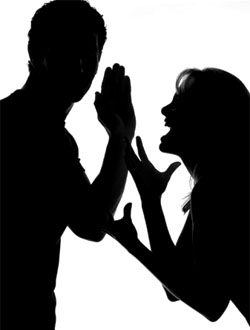Dec 22, 2025
Dec 22, 2025
 The empowered in the World have a great responsibility, to lead us lesser humans towards peace, happiness and contentment. As common folk constantly draw their references from those they revere and idolate, leadership is a great responsibility bestowed on those who have the talent, the experience, the sacrifices and the authority to be the guiding beacons of society. The higher the pedestal of power, greater is the reach to influence the masses and in turn accountability.
The empowered in the World have a great responsibility, to lead us lesser humans towards peace, happiness and contentment. As common folk constantly draw their references from those they revere and idolate, leadership is a great responsibility bestowed on those who have the talent, the experience, the sacrifices and the authority to be the guiding beacons of society. The higher the pedestal of power, greater is the reach to influence the masses and in turn accountability.
Proliferation of media both in content, tempo and reach, has led to exposition of words (and deeds) of men in high places to every nook and corner of the World within minutes if not seconds. Human proclivities for speculation further highlights the need for greater probity in public life as humanity faces the challenges of development by multiple tectonic shifts in the vast social, religious, economic and political landscape that forms the arena of global living.
The need for choosing words carefully under such a dynamic media rich environment cannot be thus over emphasized.
The recent controversy over the remarks by Pope Benedict XVI underlines the significance of this truism. No right thinking person would believe that the highest authority of a greatly respected modern religion would have had any intent of speaking deprecatingly against the Leader or followers of another faith, particularly so when the agenda between these faiths has been hijacked by fundamentalists. The context and choice of words however have proven unpropitious leading to wide spread protests across the globe from religious zealots to political liberals alike.
Regrettably under such circumstances, the voice of liberals is muted while the fundamentalists mobilize their expressions into action using inflammatory speeches to incite mobs in the garb of a reactionary response. The media in the old World had an unwritten law of not naming the religion of people involved in a clash. While some may feel this policy is anachronous today, the underlying intent has been not to publicly state what would be privately obvious and provide focus to latent thought. This self imposed restraint by the media is no longer evident due to a number of factors. Commercialization and activism is one aspect, as if Channel X or Newspaper A does not report the full import of an incident in the goriest of images and words, it feels threatened by its competitors. And in today's World of images, the snap shot would reveal the facts anyway so the media does not feel the restraint of yester years. The final argument is that of freedom of speech which is specious given that this does not provide any license to use or reuse words which incite the feelings of a community or person in general.
Leaders in high position thus must exercise utmost caution in the choice of words for their voice travels to a much larger and varied audience, particularly the reinterpreted and distorted versions and in the cacophony of protests most people forget what was said initially, its context and relevance.
Can there be any guidelines for restraint in choice of words given the power of the modern lexicon? Surprisingly so yes and it is quite simple and easy to adapt in real life. So which words should we avoid? Reference to a religion, caste, creed, gender or personal remarks unless these are adulatory should be strictly avoided, not only by the leaders but also by common citizens. Words celebrating violence or those who perpetrate it are also strictly no-no. A good example is the wordFidayeen, which provides sheen of martyrdom to people who are the worst perpetrators of terrorism. Suicide bomber is a more appropriate description of this venal phenomenon. Mujaheedin is another loaded word which comes to be applied to terrorists who are responsible for killing innocents.
While on the other hand choosing words, eulogizing peace, tranquility and bonhomie between people, community and religion coming from leaders in authority can be immensely soothing and result in cooling frayed tempers and avoiding a, 'clash of civilizations', Samuel Huntington's famous phrase which is providing justification to much bloodshed and mayhem today. Sadly the clash is between three religions, Judaism, Christianity and Islam which draw a common heritage. Had Huntington wrote about the synergy of civilizations, perhaps the history of violence in the post modern World may have been different?
17-Sep-2006
More by : Col. Rahul K. Bhonsle